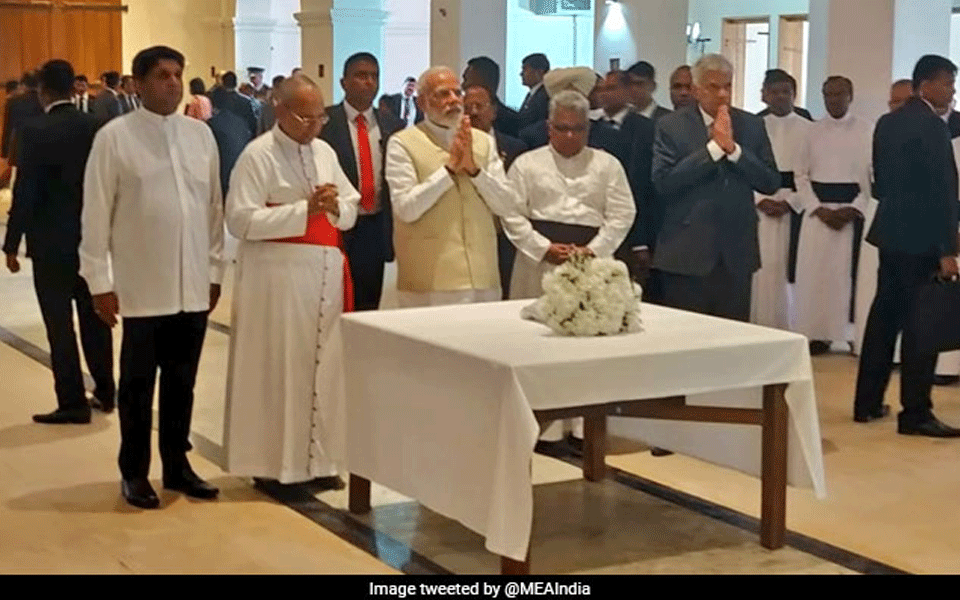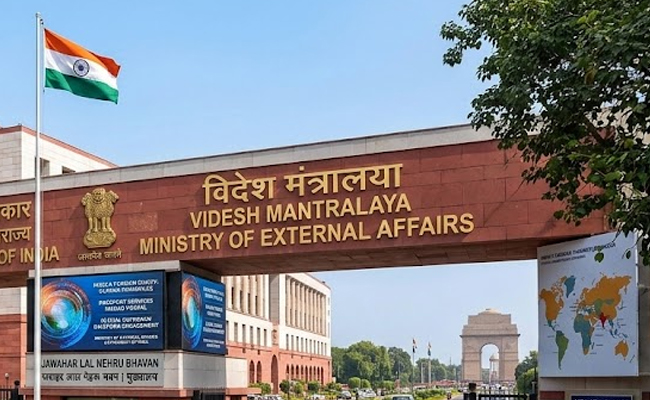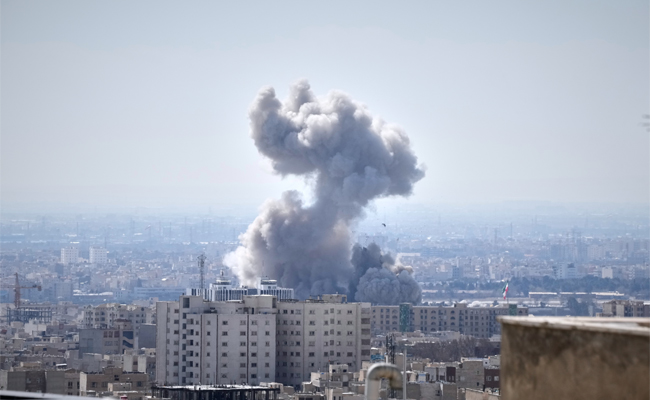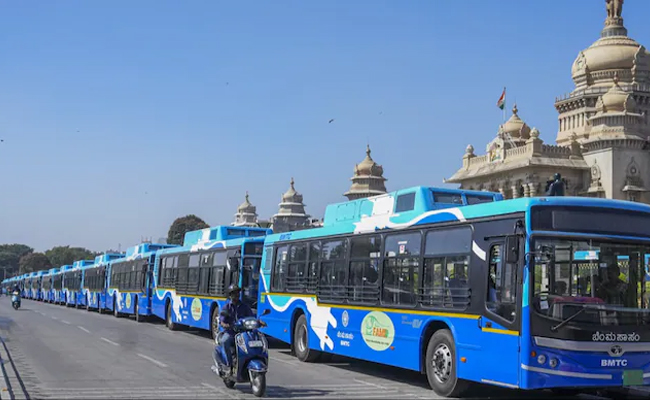Colombo: Prime Minister Narendra Modi on Sunday visited a church - one of the sites of the horrific Easter Sunday attacks - soon after his arrival here and paid tributes to the victims of the terror strikes, expressing India's affirmation of solidarity with Sri Lanka in the wake of the attacks.
"Started the Sri Lanka visit by paying my respect at one of the sites of the horrific Easter Sunday Attack, St. Anthony's Shrine, Kochchikade. My heart goes out to the families of the victims and the injured," Modi tweeted.
Nine suicide bombers carried out a series of devastating blasts that tore through St Anthony's Church in Colombo, St Sebastian's Church in the western coastal town of Negombo and another church in the eastern town of Batticaloa, and three high-end hotels frequented by tourists in the country's deadliest violence since the devastating civil war ended in 2009.
The Islamic State has claimed the attacks, but the government has blamed local Islamist extremist group National Thawheed Jamaath (NTJ) for the bombings.
"I am confident Sri Lanka will rise again. Cowardly acts of terror cannot defeat the spirit of Sri Lanka. India stands in solidarity with the people of Sri Lanka," said Modi, the first foreign leader to visit Sri Lanka after the Easter attacks.
His visit is considered as a sign of India's affirmation of solidarity with Sri Lanka in the wake of the deadly Easter terror attacks.
"First stop - St. Anthony's church. PM @narendramodi visits St Anthony's Church in #Colombo as a mark of respect for those killed in the Easter terrorist attacks. India is with Sri Lanka on the fight against terrorism," External Affairs Ministry spokesperson Raveesh Kumar tweeted.
Later, Modi was accorded a ceremonial reception at the President's house. Sri Lankan President Maithripala Sirisena was also present. Sirisena was seen holding an umbrella and providing cover to himself and Prime Minister Modi from rain.
During his day-long visit, Prime Minister Modi will hold talks with President Sirisena, Prime Minister Ranil Wickremesinghe and Leader of the Opposition Mahinda Rajapaksa. A delegation of the main Tamil party - The Tamil National Alliance - is also expected to meet Prime Minister Modi.
Modi arrived in Colombo from Maldives where he held wide-ranging talks with Maldivian President Ibrahim Mohamed Solih on Saturday.
His visit to Maldives and Sri Lanka demonstrates the priority that India attaches to the SAGAR (Security and Growth for All in the Region) doctrine, the sources said.
Let the Truth be known. If you read VB and like VB, please be a VB Supporter and Help us deliver the Truth to one and all.
New Delhi (PTI): The Ministry of External Affairs (MEA) has set up a control room to assist those affected by the escalating crisis in West Asia.
The MEA has said almost one crore Indian citizens live in West Asia and their safety and well-being is of "utmost priority" for New Delhi.
As the Iran-US conflict widened, the Indian embassy in Iran moved hundreds of Indian students from the Iranian capital of Tehran to safer locations.
"A Control Room has been set up in the Ministry of External Affairs in view of the current situation in West Asia and the Gulf region," the MEA said on Wednesday.
"The Control Room can be contacted from 9 am to 9 pm at: 1800118797 (Toll Free) +91 11 2301 2113, +91 11 2301 4104, +91 11 2301 7905," it added.
The US launched military strikes on Iran on February 28, killing Iranian Supreme leader Ali Khamenei.
Following the military offensive, Iran has carried out a wave of attacks mainly targeting Israel and American military bases in several Gulf countries, including the UAE, Bahrain, Kuwait, Jordan and Saudi Arabia.
The MEA on Tuesday noted that almost one crore Indian citizens live and work in the Gulf region, and their "safety and well-being is of utmost priority."
"We cannot be impervious to any development that negatively affects them," it said.
The MEA said New Delhi will continue to closely monitor the evolving situation and take relevant decisions in the national interest, adding it is in touch with the governments in the region as well as other key partners.
A Special Control Room has been set up in the Ministry of External Affairs in view of the current situation in West Asia and the Gulf region. Details are as below ⬇️
— Randhir Jaiswal (@MEAIndia) March 4, 2026
🔗 https://t.co/nK3d6SY9Pa pic.twitter.com/v2EhUI5B1x




